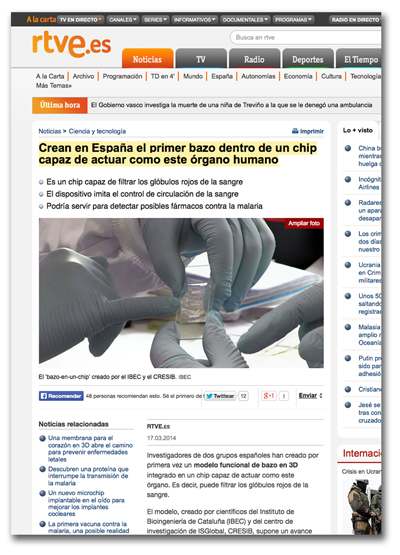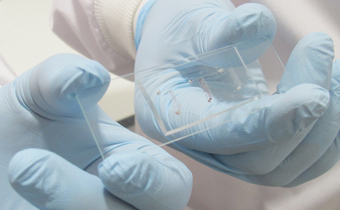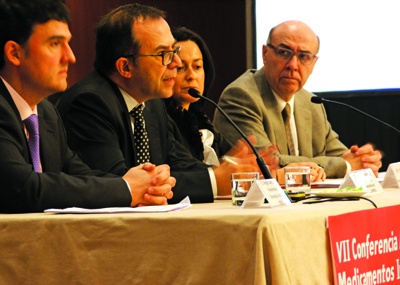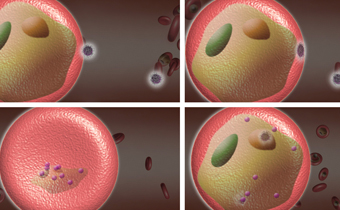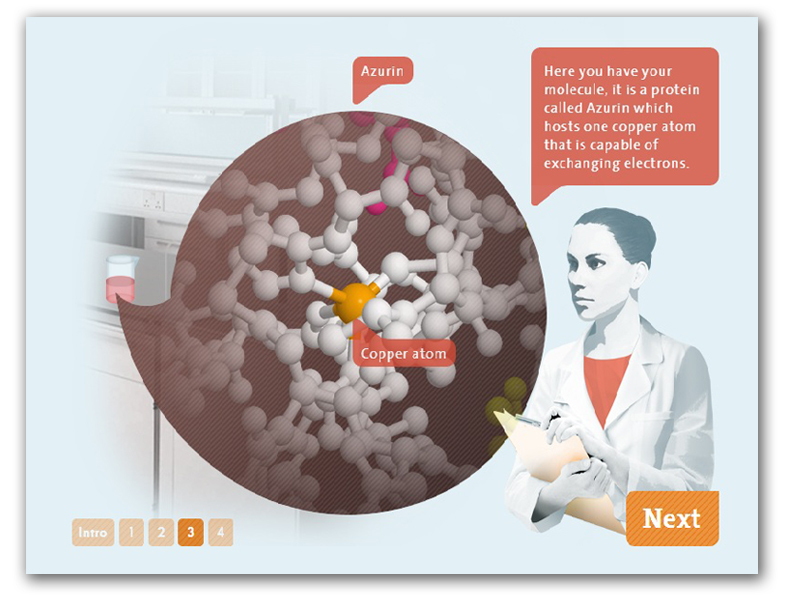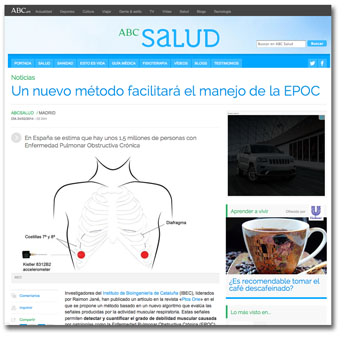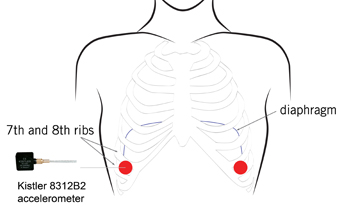ERC promoters honoured with first ACER Award
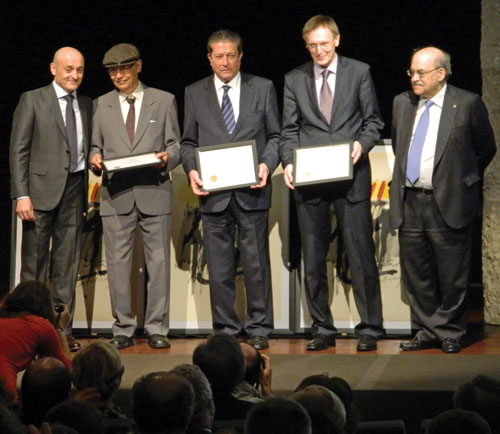 On Friday the ceremony took place of the first ever Asociación Catalana de Entidades de Investigación (ACER) Award, which was given to three of the key people who made possible the existence of the European Research Council (ERC). IBEC’s own ERC-supported scientists attended the ceremony, as did IBEC director Josep Samitier, who is on the Board of Directors of ACER.
On Friday the ceremony took place of the first ever Asociación Catalana de Entidades de Investigación (ACER) Award, which was given to three of the key people who made possible the existence of the European Research Council (ERC). IBEC’s own ERC-supported scientists attended the ceremony, as did IBEC director Josep Samitier, who is on the Board of Directors of ACER.

